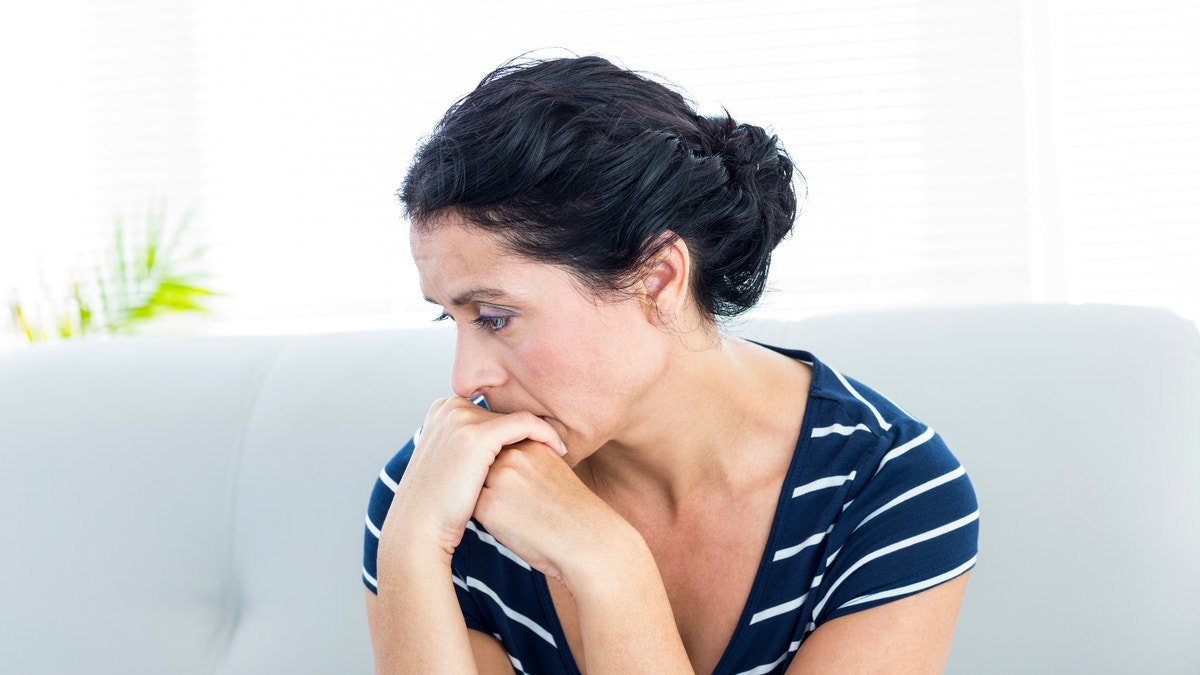
Unhappy woman sitting on the couch on white background (Wavebreakmedia)
Just because social attitudes toward sex at older ages are more positive than in the past doesn't mean all older women have positive feelings about sex, according to a new Australian study.
Researchers found that nearly 90 percent of women over 70 in the study had low sexual desire and a much smaller proportion were distressed about it. The combination of low desire and related distress is known as hypoactive sexual desire dysfunction (HSDD) and nearly 14 percent of women had it.
Older people are increasingly remaining sexually active and sexual wellbeing is important to them, said senior author Susan R. Davis of Monash University in Melbourne.
"This is probably because people for this age are healthier now than people of this age in past decades," Davis told Reuters Health by email.
A random national sample of women ages 65 to 79 was contacted by phone and invited to take part in a women's health study. Those who agreed received questionnaires asking about demographic data, partner status and health history, including menopausal symptoms, vaginal dryness, pelvic floor dysfunction, depression symptoms, sexual activity and sexual distress.
Of the 1,548 women who completed and returned the questionnaires, about half were married or partnered, 43 percent had pelvic surgery and 26 percent had cancer of some kind. About a third had menopausal symptoms and one in five had vaginal dryness during intercourse.
In the entire sample, 88 percent reported having low sexual desire, 15.5 percent had sex-related personal distress, and women with both, who qualified for HSDD, made up 13.6 percent of the group, as reported in Menopause.
That's lower than has been reported for this age group in the past, and similar to how many women report HSDD at midlife, Davis noted.
"Considering how conservative women of this age are, we were surprised that over 85 percent of the women completed all the questions on desire and sexual distress so we could actually assess this on most of the study participants," Davis said.
Vaginal dryness, pelvic floor dysfunction, moderate to severe depressive symptoms and having a partner were all associated with a higher likelihood of HSDD. Sexually active women, partnered or not, more often had HSDD than others.
"We would never label women with low/diminished sex drive as having HSDD," Davis said. "In our study 88 percent had low desire and only 13.6 percent had HSDD, this is because low desire is not an issue if you are not bothered by it."
Vaginal dryness, associated with HSDD in this study, can easily treated by low dose vaginal estrogen which is effective and safe, she said.
HSDD was also associated with urinary incontinence, depressive symptoms and hot flashes and sweats, she said.
"Even talking about the problem with a health care professional who is interested and sympathetic is a good start," Davis said. "Conversely health care professionals need to realize that many older women remain sexually active and do care about this issue."
